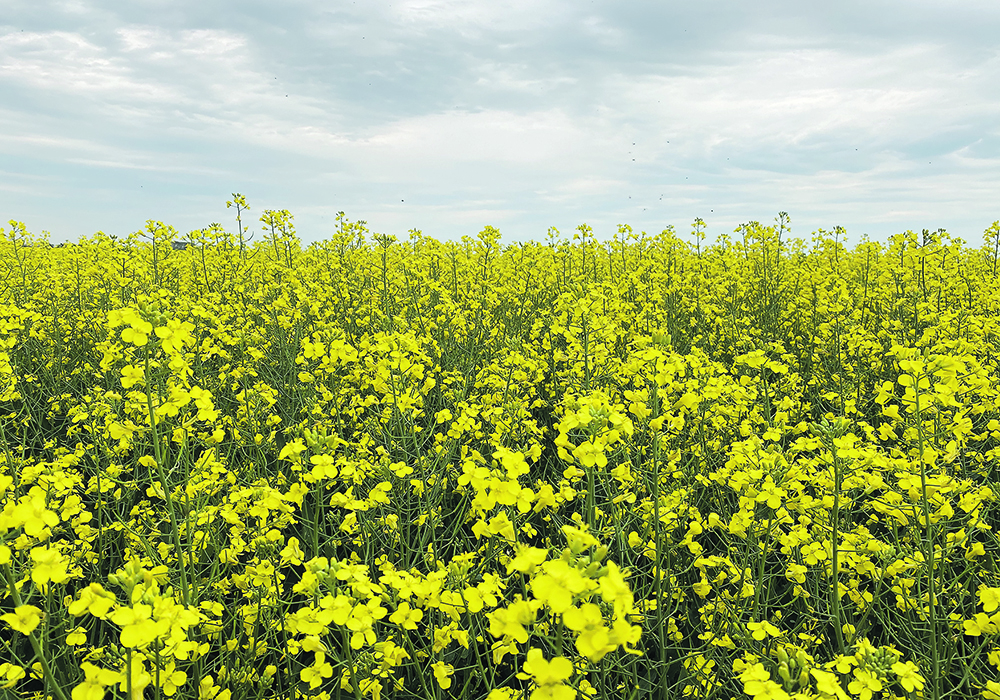Some plant breeders say they are reluctant to use the technology to engineer new canola hybrids because of Europe’s stance on the practice
The distance from Brussels, Belgium, to Saskatoon, Sask., is 6,861 kilometres.
It may be a third of the world away, but decisions in Brussels have an impact on canola growers in Saskatchewan.
Some plant breeders are reluctant to use gene editing technology to engineer new and better canola hybrids because Europe is hostile to the practice.
“The biggest challenge right now we face is regulatory hurdles in other geographies,” said a canola breeder in Western Canada who works for a large corporation. “It’s more the European framework…. They treat gene editing the same as genetically modified organisms.”
Read Also

Farming Smarter receives financial boost from Alberta government for potato research
Farming Smarter near Lethbridge got a boost to its research equipment, thanks to the Alberta government’s increase in funding for research associations.
Gene editing is a technology that allows plant breeders to precisely delete a gene or add a gene from the same family of crops, to achieve a desired trait.
The inventors of a gene-editing method called CRISPR- Cas9 recently won the Nobel Prize in chemistry. Many experts believe it will transform plant science because it’s more precise than old technologies like mutagenesis and much faster than conventional plant-breeding techniques.
Canadian canola breeders could use it to improve crop traits, such as enhancing disease resistance to clubroot, but the EU is a significant market for Canadian canola.
In 2019, Canada exported $640 million, mostly canola seed, to the European Union, according to Canola Council of Canada figures.
If European buyers won’t accept a new canola hybrid because it was developed with gene editing, it creates a regulatory problem for Canadian canola growers and exporters.
In 2018, the European Court of Justice ruled that gene-edited crops should be regulated the same as GM crops, meaning crop developers must spend millions to prove that the gene-edited crop is safe.
That position is out of the ordinary.
The United States, Argentina, Australia, Japan and other nations say gene editing is nothing like GMO, or transgenic crops.
In the U.S., gene-edited crops are treated similarly to conventional plant breeding and will be largely exempt from additional regulations.
“If you’re upping disease resistance in a plant from 10 percent to 40 percent using the genes that are in the plant with gene editing, you could have gotten there with conventional breeding… (so) you’ll receive the same level of oversight,” said Ian Affleck, vice-president of plant biotechnology with CropLife Canada.
The EU’s position on gene edited crops is an obstacle, but Canadian plant breeders and innovators should adopt the latest technology, Affleck said.
“We can’t let the politics and ideologies of the EU dictate our agricultural policies…. We have to make sure we do what’s right for… Canadian farmers.”
Plus, Europe’s position on GM crops isn’t black and white. Its farmers are not permitted to grow GM crops but the continent is the world’s largest importer of soybean meal and second largest importer of soybeans, buying about 15 million tonnes annually.
Almost all of that is genetically modified.
In the case of gene edited crops, Europe might be willing to buy gene-edited canola or canola oil from Canada.
In the meantime, nations that support gene editing in agriculture, like Australia, Argentina, Japan, the U.S. and Canada, must come together to counter Europe’s influence over global regulations, Affleck said.
“So, we can help drive the world in the right direction.”


















